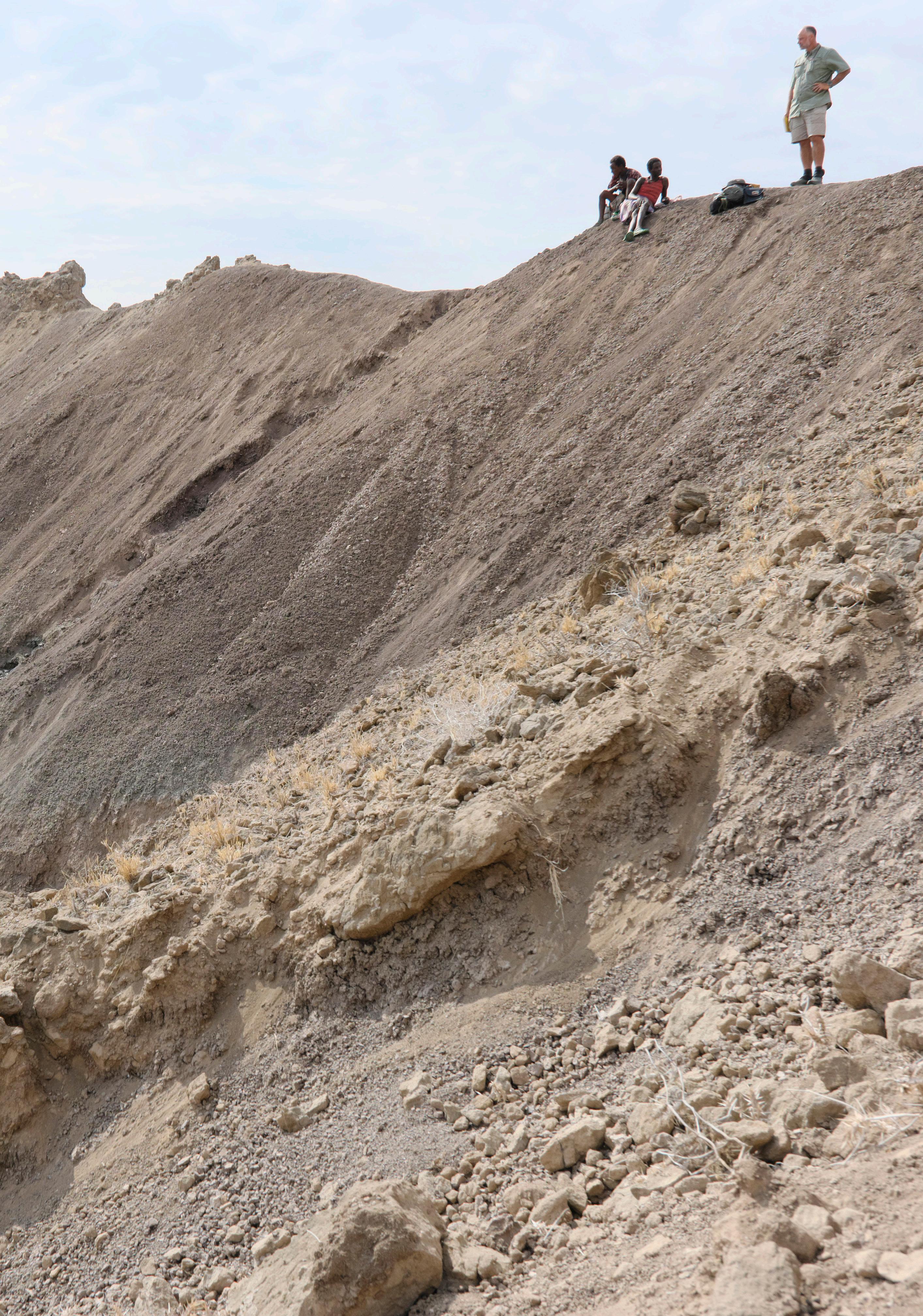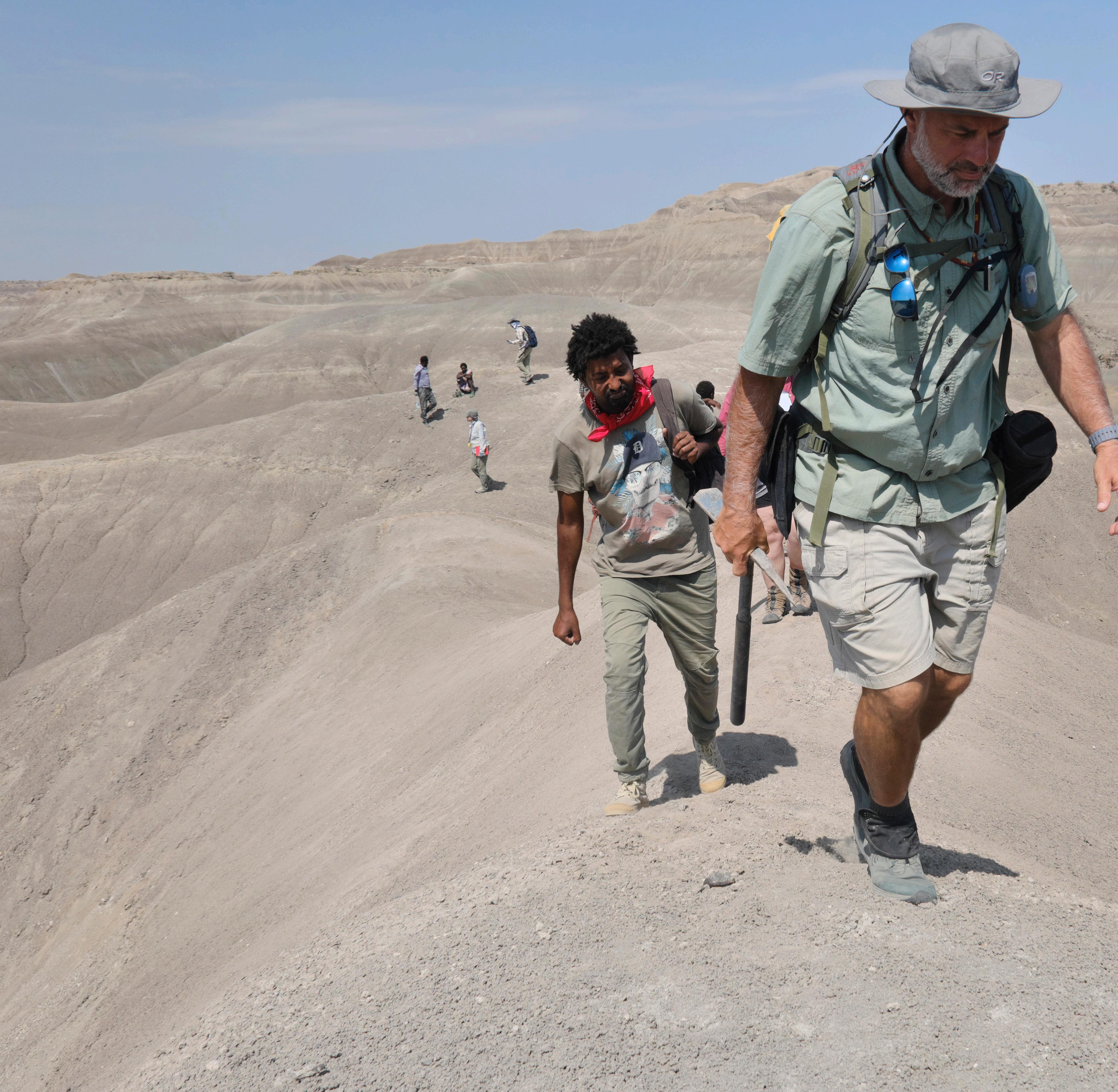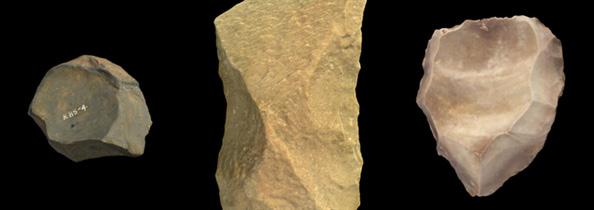

Fact sheet Institute of Human Origins

Connecting the human past to the global future
The Institute of Human Origins is at the forefront of paradigm-shifting discoveries and novel approaches to pressing and newly emerging scientific questions about human existence over deep time. Since 1981, scientists at the institute, now housed in The College of Liberal Arts and Sciences, have been conducting innovative research in paleoanthropology, genetics and human and nonhuman primate cultural evolution.
The Institute of Human Origins is introducing best practices in studying human origins by being all-inclusive and engaging diverse scientists, mentoring students and building on our public-private partnerships in all communities. IHO scientists are leading the way in creating new knowledge about our place in the world and how we became the dominant species through research in labs and fossil evidence from numerous field sites around the world.
High-profile discovery: Searching for fossil remains of our ancestors, from the beginning of walking on two legs six million years ago to the earliest evidence of our own genus, Homo.
Emergence of modern humans in Africa:
Discoveries that reveal how modern humans dominated the world after the great diaspora out of Africa.
Nonhuman primate behavior:
Investigating what nonhuman primates tell us about how our ancient ancestors developed cooperative behaviors.
Genetic inquiry:
DNA research opening new paths to understanding the genetic bases of ancient human diseases and primate behavior.
Human uniqueness: Exploring the emergence of uniquely human attributes and understanding our species development and its enduring impact on the planet.
Human adaptations to a changeable planet:
Excavating deep earth cores to examine how global climate change affected human evolution.
Exploring the world and making advanced discoveries
From Africa to the Philippines, our scientists continue to make discoveries that are changing the world. Institute of Human Origins field sites such as Lucy’s site in Hadar in Ethiopia and Pinnacle Point in South Africa have become UNESCO World Heritage sites, while other sites have become key conservation sites for endangered species.

Study points to origin of cumulative culture in human evolution
A study by Institute of Human Origins Research Scientist and Associate Professor Charles Perreault shows that humans began rapidly accumulating technological knowledge through social learning around 600,000 years ago.

ASU primatology, snare removal program supports chimpanzee conservation Institute of Human Origins Research Scientist and Associate Professor Kevin Langergraber published a new study that was the first to statistically prove that snare removal helps conservation efforts for wild chimpanzees in Uganda. The report showed a 79% reduction in victims after implementing the snare removal program.

ASU research site given UNESCO World Heritage designation
For over 25 years Research Scientist and Professor Curtis Marean has studied the caves at Pinnacle Point, South Africa. The caves provide clues about people living at the ocean’s edge around 160,000 to 50,000 years ago.
Public and private support make our explorations possible
The Institute of Human Origins is a unique research center at Arizona State University with a public research council. The IHO Research Council includes individuals from business, education and scientific communities who provide strategic guidance and financial support to the center.
Learn more about the IHO Research Council.
iho.asu.edu/iho-researchcouncil-and-executive-board
To become a member, email Director Yohannes Haile-Selassie at YHaileSelassie@asu.edu.
Strengthen the academic heart of ASU
The Institute of Human Origins is dedicated to making new scientific discoveries across the globe while engaging with diverse communities.
iho.asu.edu
Our research is collaborative — enlisting the resources of scientists and people who, like you, are interested in moving the science of human origins forward to connect the human past to the global future.”
— Yohannes Haile-Selassie Director, Institute of Human Origins Virginia M. Ullman Professor of Natural History and the Environment School of Human Evolution and Social Change
@asu-human-origins
@human_origins_asu
@asuiho.bsky.social
@ASUInstituteofHumanOrigins
@ASUInstituteofHumanOrigins
Walton Center for Planetary Health 777 East University Drive, Second Floor #200L1 Tempe AZ 85287-8404
